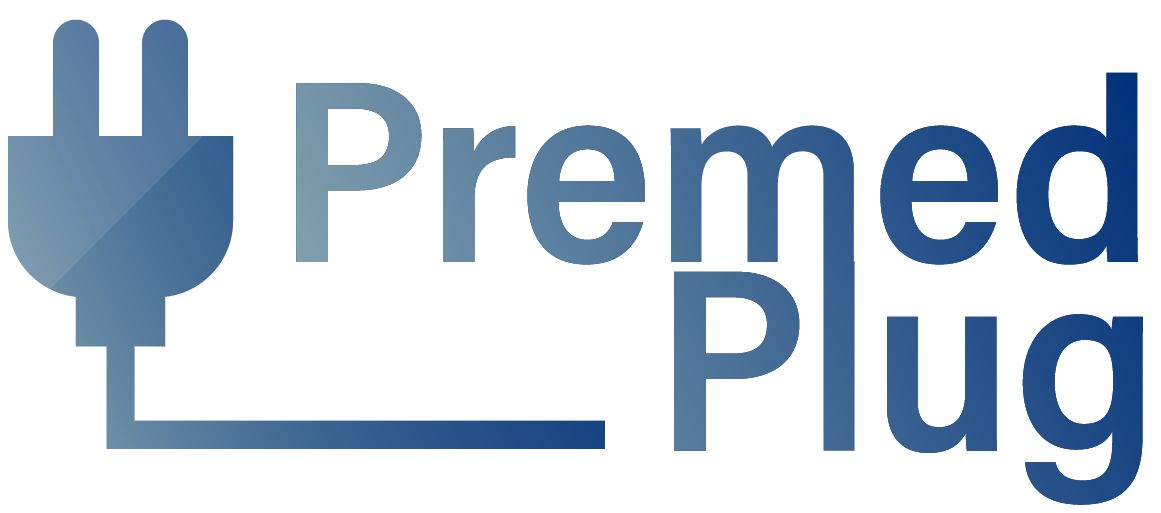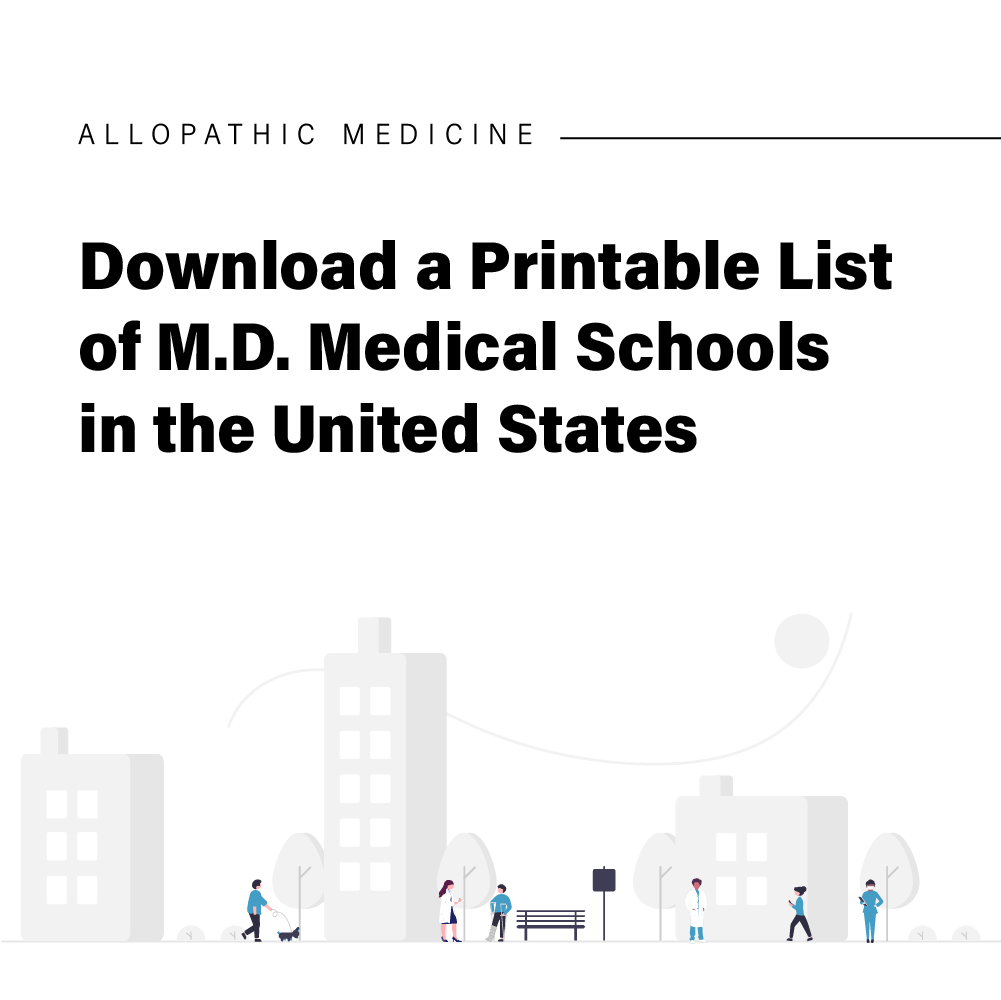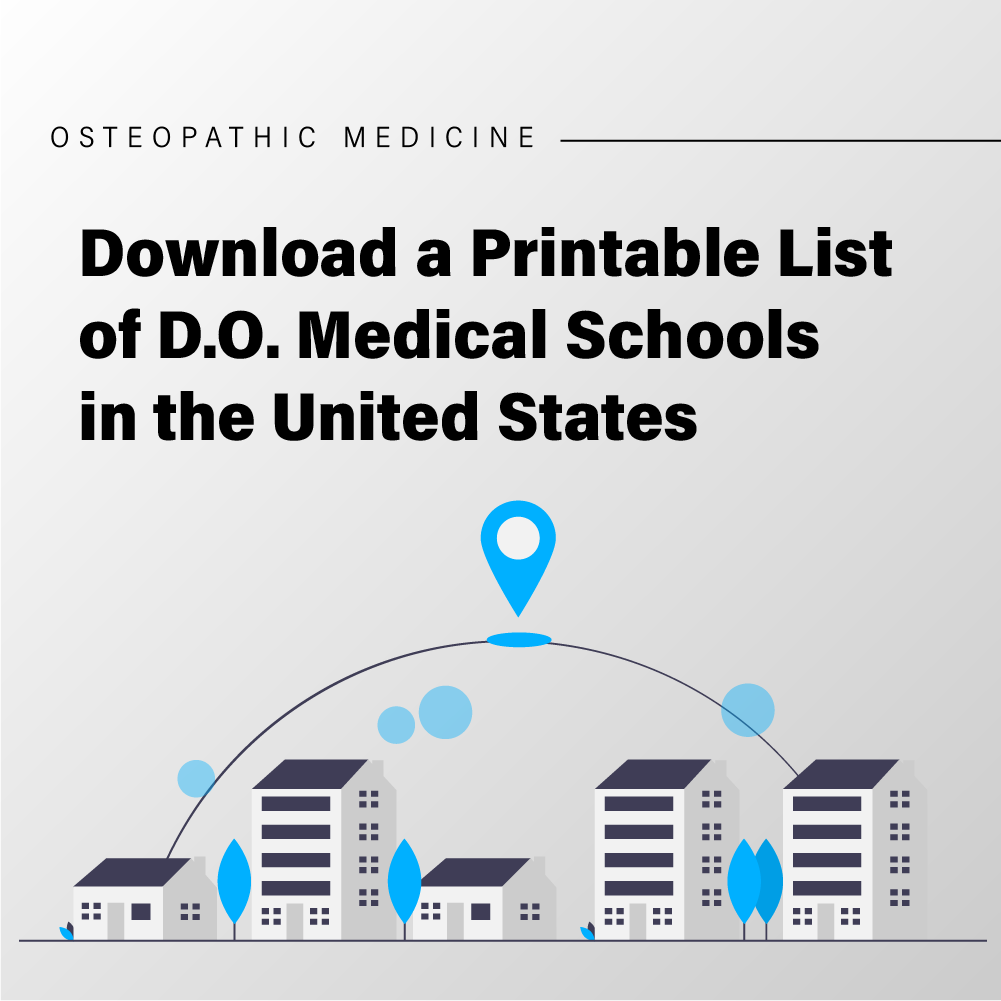The AAMC PREview exam assesses your understanding of pre-professional behavior. As an entering medical student, your understanding of these behaviors is important so that you can be successful through school and into residency!
AAMC PREview Exam overview
With a series of medical school-based scenarios, the AAMC has crafted an exam to assess your readiness for medical school and beyond. Formerly known as the Situational Judgement Test (SJT), the AAMC PREview is written by experts including faculty members at universities or hospitals. During the exam, you will be presented with various scenarios you may come across as a doctor-in-training and you will be asked to choose the best course of action.
What 8 pre-professional behaviors does the AAMC PREview assess?
The AAMC PREview exam evaluates your knowledge of what is expected from you as a future doctor. Specifically, the PREview exam measures how you would think and act in eight areas important for the professional workplace. The AAMC calls these eight areas the “8 core pre-professional competencies.” To determine how ready you are for medical school, PREview presents real-world scenarios based on the following 8 competencies described below.
Service Orientation
Service orientation is a great way to show that you care about your community. As such, doing well in this section means that you often show sensitivity about how others feel. More specifically, it shows that you are willing to put others’ needs ahead of yours. On a more professional level, this module will assess your desire to help others. Moreover, this includes your understanding of the responsibilities and commitments you will need to make to society as a doctor.
Social Skills
To assess your social skills, you’ll answer scenarios about how you would interact with other people under different (and often difficult) scenarios. Here, you must demonstrate the ability to read social cues. Altogether, doing well in this section shows that you can build meaningful interactions with others. This includes treating others with respect, adapting your own behavior in complicated situations, and paying high regard to the goals and feelings of others.
Cultural Competence
The ability to understand different cultures is essential for work in the medical field. As such, AAMC will evaluate your cultural competence. By being culturally competent, you display knowledge of socio-cultural factors that affect interactions with others. This shows that you have an appreciation across multiple dimensions of diversity. Even more, scoring well in this section shows that you acknowledge bias incidents and that you can engage opposing perspectives to learn.
Teamwork
The ability to work well with others is an important life skill, especially in fast-paced and high-stakes environments. Therefore, the PREview exam will assess how you engage others to achieve a common goal. This includes your mannerisms in sharing knowledge, providing constructive feedback, and prioritizing your team’s success. As a future doctor, you should aim to work well with other healthcare providers, such as nurses, clinicians, and other colleagues.
Ethical Responsibility to Self and Others
Honest and ethical behavior is a necessary part of life, especially as a future physician. In this module, the PREview exam will challenge you to demonstrate ways in which you follow your moral compass. By successfully showing that you have high ethical standards, you show that you don’t engage in peer pressure that might lead you to make bad decisions. Above all, this shows that you are able to engage your peers without compromising their personal and professional integrity as well.
Resilience and Adaptability
The ability to withstand stress and adjust well to changing situations is a key indicator of resilience. For instance, people who can cope with difficult circumstances can overcome setbacks, no matter how large they may seem at first glance. As such, this core competency assesses your ability to recover from difficult situations.
Reliability and Dependability
A dependable person is someone people can trust to follow through on their commitments. Therefore, the AAMC PREview will present you with scenarios that assess your ability to fulfill professional and personal obligations. This includes taking pride in your work, taking accountability for your responsibilities, and addressing your commitments in a timely manner. By doing these things, you demonstrate that you adhere to a professional code of conduct.
H4: Capacity for Improvement
As a premedical student, your capacity for improvement includes setting goals to further your development, learning new skills, and studying new concepts. As such, the AAMC PREview exam is looking to understand how you seek and respond to constructive criticism and engage in self-directed learning.
How long is the AAMC PREview Exam, and what should you expect?
To help you prepare successfully for the AAMC PREview exam, this section breaks down what your test day will look like according to the AAMC.
What does test day look like?
You will be taking the PREview exam through a secure online testing platform. This means that you can take the exam at home! However, AAMC requires that you install a proctoring browser extension. To do this, you give your proctor access to your device’s camera, monitor, and microphone.
Altogether, you can expect your PREview exam to last between 1.5 to 2 hours. You have a maximum of 75 minutes (1 hour, 15 minutes) to rate the effectiveness of a hypothetical response to 30 scenario sets. Then, the rest of the time is for administrative activities. Examples include checking in, agreeing to exam instructions, voiding questions, and choosing your schools of interest.
Things you need to have ready before the AAM PREview exam:
- AAMC ID with associated username and password for exam registration
- Government-issued identification
- Your ID should match the first and last name you used to register with the AAMC. Acceptable ID includes a state-issued driver’s license, state-issued identification card, or U.S. passport. Additionally, your ID must include a printed expiration date that is after your test day, a visible signature, a photo that identifies you, and the ID must be in English and in good condition.
- System Requirements
- Yardstick’s Measure Software, a third-party vendor that will deliver your exam
- ProctU services to proctor and monitor your exam
- LogMeIn software for screen sharing
- Technical Requirements
- Only a desktop or laptop is compatible with the PREview exam system requirements (no tablets or cellphones)
- Reliable internet connection
- A functioning microphone
- Web camera (minimum 640 x 480 resolution)
- For Windows users, Windows 8 or higher and for Mac users, MacOS 10.13 or higher.
- Minimum of 2 core CPU
- Minimum of 1 Mbps internet download and upload speed
- Minimum of 4 GB RAM
- Minimum of 1366 x 768 screen resolution
For more specifications, please see AAMC’s PREview Exam Essentials and AAMC PREview™ Test Day.
Can I retake the AAMC PREview exam?
At the end of your exam, you can either grade or void your exam. Your choice can depend on how well you feel about the test. If you don’t feel confident that you scored well, you can decide to void your exam. However, keep in mind that you can only take the PREview exam once a year. Therefore, voiding your exam will count as your single attempt. By voiding your exam, you will be choosing to not receive any feedback. Regardless, your decision of either grading or voiding your PREview exam will be permanently recorded in the AAMC PREview Portal.
You can only register for another test in the same year under three scenarios:
- Not showing up for your exam
- Not having an acceptable ID on test day
- Refusing to agree to the Examinee Agreement terms
In the case that you do begin taking your exam, the only acceptable reason to retake your exam will be if you encounter technical problems. However, any technical issues are evaluated by software recommended by the AAMC. If no signs of technical problems are detected, you will not be allowed to retake the exam within the same testing year. For more details, see AAMC PREview™ Test Day section titled “Reporting a Technical Issue.”
What schools require the PREview exam?
As of April 4, 2022, there are less than 20 schools that accept scores for the PREview exam.
Schools that require premedical students to submit PREview exam scores are:
- Carle Illinois College of Medicine (research only)
- Michigan State University College of Human Medicine (either PREview or CASPer)
- Saint Louis University School of Medicine
- Universidad Central del Caribe School of Medicine
- University of California at Davis School of Medicine
- University of California, Los Angeles David Geffen School of Medicine
- University of Hawaii, John A. Burns School of Medicine
Schools that either recommend or accept the PREview exam include:
- Chicago Medical School at Rosalind Franklin University of Medicine & Science (recommended for research only)
- Cooper Medical School of Rowan University
- Des Moines University Medicine & Health Sciences
- Geisinger Commonwealth School of Medicine
- George Washington University School of Medicine
- Morehouse School of Medicine
- Oakland University William Beaumont School of Medicine
- Southern Illinois University School of Medicine
- University of Alabama at Birmingham Marnix E. Heersink School of Medicine
- University of Oklahoma College of Medicine (recommended for research only)
- University of Virginia School of Medicine (accepted for research only)
To see a regularly updated list of schools requiring the PREview exam, please visit AAMC PREview™ Participating Medical Schools.
How much is the AAMC PREview exam?
Taking the AAMC PREview exam will cost you $100 for the year. Students unable to pay the registration fee may apply for the Fee Assistance Program for a fee waiver.
The following fees will apply to changing your test date:
- Rescheduling has a fee of $25.
- Canceling up to 24 hours prior to your exam will only give you a 50% refund.
- Canceling the same day or not showing up to your exam forfeits your entire payment.
Exceptions will be made for the following scenarios, with documentation:
- Hospitalization on your test day
- Death in your immediate family
- Unexpected military duty
- Unexpected healthcare service duties
- Jury duty
- Displaced or evacuated from your home due to a natural disaster
For more details, please see page 10 of AAMC’s PREview Exam Essentials.
How is the AAMC PREview exam scored?
The PREview exam scoring scale ranges from 1 (lowest) to 9 (highest). If you score closer to the high end, congratulations! A score closest to a 9 shows that you are a good fit for the AAMC’s highest standards of pre-professional behavior.
After obtaining your raw score, AAMC will equate your score to a scaled score. Scaling your score compensates for any variability in how hard or easy your test questions are. In addition to your score, you will receive a confidence band and a percentile rank. The confidence band marks how accurate your score is. Finally, your percentile ranks you among other test-takers that got scores equal to or less than your score.
When will I receive my score?
Your score release date will depend on your test date. For all test dates, you can expect your scores to be released about one month later.
AAMC PREview exam test dates
According to AAMC’s PREview Testing Calendar, there are 7 testing windows for 2023:
#1: March 2023
- Test date: March 16 & 17
- Registration period: January 17-March 2
- Score release date: April 18
#2: May 2023
- Test date: May 10 & 11
- Registration period: January 17-April 26
- Score release date: June 13
#3: June 2023
- Test date: June 14 & 15
- Registration period: January 17-June 1
- Score release date: July 18
#4: July 2023
- Test date: July 12 & 13
- Registration period: January 17-June 28
- Score release date: August 15
#5: August 2023
- Test date: August 16 & 17
- Registration period: January 17-August 2
- Score release date: September 19
#6: September 2023
- Test date: September 13 & 14
- Registration period: January 17-August 30
- Score release date: October 17
#7: October 2023
- Test date: October 11 & 12
- Registration period: January 17-September 27
- Score release: November 9
How do I ace the AAMC PREview exam?
To prepare for the PREview exam, we recommend familiarizing yourself with AAMC’s 8 Core Competencies. By doing this, you’re gaining a clear understanding of what makes you a successful medical school applicant.
The AAMC also offers resources to help you ace your PREview exam! They are listed below and are all FREE.
FREE AAMC PREview Exam Resources
- AAMC PREview Sample contains sample questions
- The 2023 AAMC PREview Examinee Preparation Guide provides strategy advice
- The 2023 AAMC PREview Practice Exam Booklet offers an official full-length practice exam and explains the scoring key to help you understand the structure of the exam and how it’s graded.
- The PREview Test Day Experience Video gives you an idea of what to expect during the test day.
- AAMC PREview™ Exam: An Overview and Q&A with Medical Schools – May 4 is a recording of a past webinar in which medical schools explain their expectations and benefits of taking the PREview exam.
Example AAMC PREview exam questions
For each scenario, you will be asked to rate several responses. Your rating options will be:
- Very Ineffective (the response will make the situation worse)
- Ineffective (the response will not improve the situation or may cause a problem)
- Effective (the response could be helpful but will not significantly improve the situation)
- Very Effective (the response will significantly improve the situation)
Below, we include a few example scenarios from The 2023 AAMC PREview Practice Exam Booklet so that you know what kind of scenarios to expect!
Sample scenario #1
You are pursuing a two-week volunteer opportunity at a well-regarded local clinic. When you receive your course schedule, you realize the volunteer opportunity would conflict with your weekly required lab. This is the only time that the lab is offered this semester, so you are not able to make up the lab. Participation in the lab will count toward your grade.
Please rate the effectiveness of each response to this situation.
- Skip your lab for two weeks to attend the volunteer opportunity.
- Ask your lab instructor to identify a solution that will allow you to attend both.
- Stop pursuing the volunteer opportunity so that you can attend the required lab.
- Tell your lab instructor in advance that you will miss two of your scheduled lab sessions.
- Attend the lab and investigate if similar volunteer opportunities are available at another time.
Remember, you will be rating each proposed response with the following choices:
- Very Ineffective
- Ineffective
- Effective
- Very Effective
Sample scenario #2
You are assigned to a small group in your clinical skills course. One of your group members has
recently struggled with their assignments. The group member is often late to sessions, prepares
materials of poor quality, and needs numerous reminders to complete tasks. Your group receives a new assignment that is due in three weeks and will be graded based on the group’s overall performance.
Please rate the effectiveness of each response to this situation.
- Encourage the group member to speak to the professor about creating a plan to handle their workload.
- Meet with the group member one-on-one and ask how you can help them contribute more effectively to the assignment.
- Meet with your group and evenly divide tasks across all members, making sure expectations are clear.
- Ask the professor to assign the group member to a different group.
- Work with the other members of your group to complete the assignment without the group member.
- Request that your professor grade each group member independently.
- Schedule recurring group meetings to review the work completed by each group member.
- Tell the group member their lack of accountability places the entire group’s performance and grade at risk.
Sample scenario #3
For the past few days, you have been checking up on several patients, including a patient who is recovering from surgery. The patient has been in the hospital for one week and has not received any visitors. The patient is friendly, cheerful, and enjoys sharing stories about their career as a photographer. However, you are finding it difficult to politely end your conversations so that you can spend enough time with other patients with whom you were assigned to meet.
Please rate the effectiveness of each response to this situation.
- Spend additional time visiting with the patient once you have completed your other patient visits.
- Tell the patient that you do not enjoy photography, so you can shorten your interactions with them.
- Ask another student to visit the patient, so you can focus on your other patients.
- Determine if any of your tasks can be done more efficiently, so you can spend more time with the patient.
- Create an excuse, so you can leave the patient’s room.
- Tell the patient you have other patients to visit, but you will try to stop by later if you have time.
- Ask your supervising doctor for advice on how to handle the situation.
- Skip some of your other patient visits, so you can spend additional time with the patient.
In conclusion,
The AAMC PREview Exam is rising in popularity among medical schools for the 2023-2024 application cycle. Your score on this exam helps medical school admissions gain a holistic view of who you are and how well prepared you are for professional graduate school. Altogether, this helps schools level the playing field for applicants from different backgrounds. That is, the PREview exam highlights your non-academic skills and predicts your success as a future doctor. Although only 18 schools currently recommend or require the PREview exam, this number might continue to rise over the next few years. However, the AAMC provides many free resources to prepare for this 75-minute exam. See our Helpful Links section below!
Helpful Links:
- AAMC: The Core Competencies for Entering Medical Students
- AAMC PREview™ Test Day
- AAMC’s PREview Exam Essentials
- AAMC PREview™ Participating Medical Schools
- Fee Assistance Program (FAP)
- AAMC PREview™ Eligibility and Registration
- AAMC PREview Sample
- The 2023 AAMC PREview Examinee Preparation Guide
- The 2023 AAMC PREview Practice Exam Booklet
- The PREview Test Day Experience Video
- AAMC PREview™ Exam: An Overview and Q&A with Medical Schools – May 4



